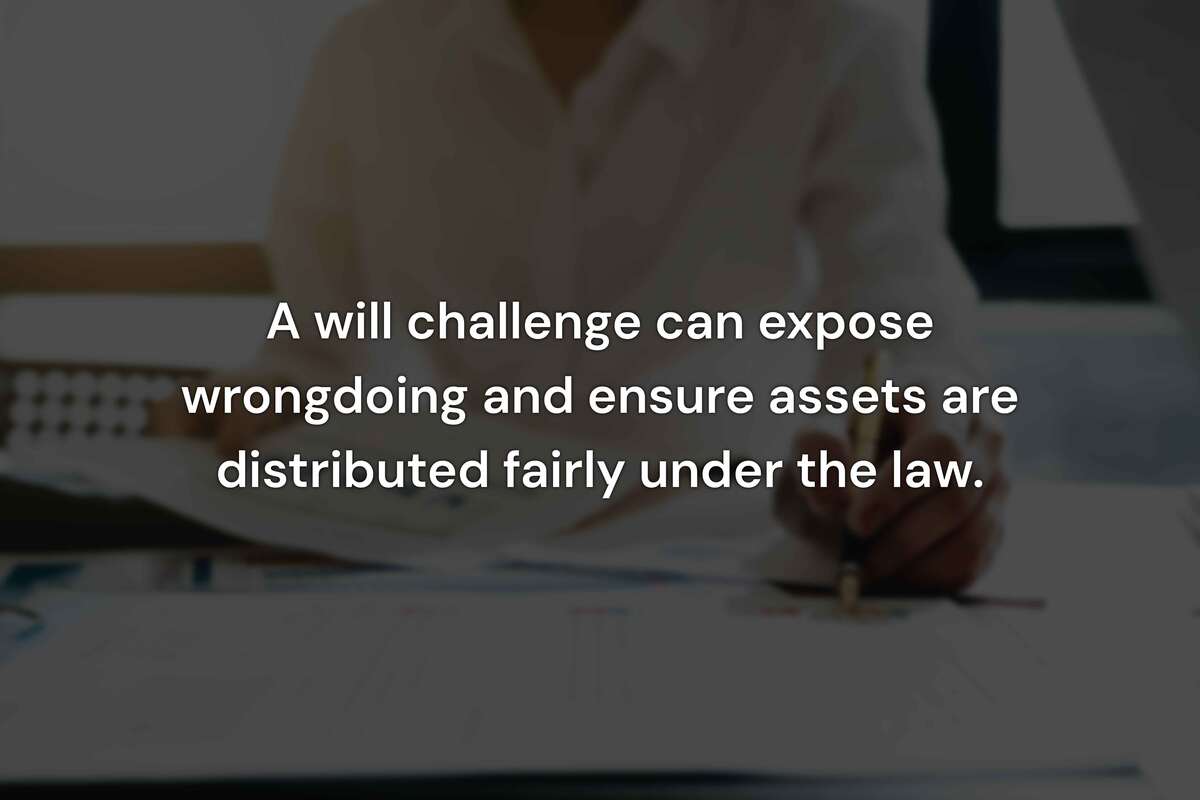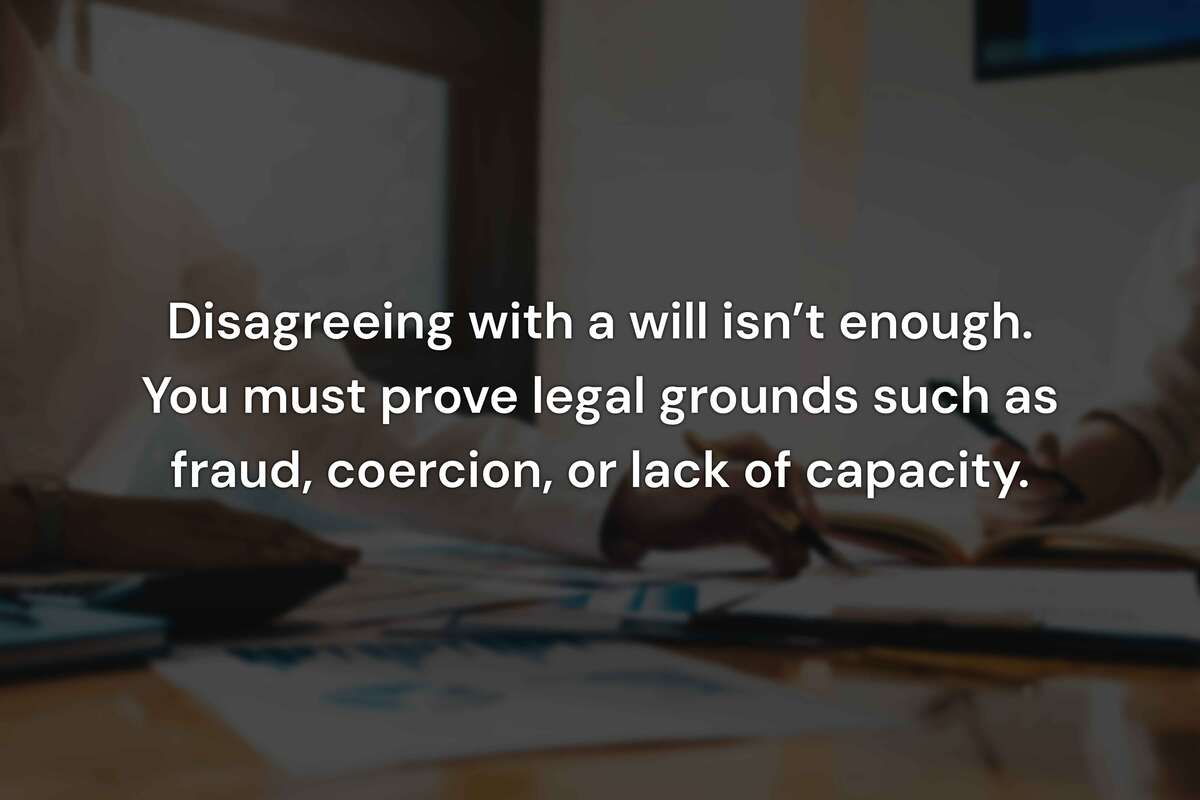Contesting a will is the legal process of challenging its validity in court. People typically contest wills when they believe it was created under unfair circumstances, such as fraud, coercion, or lack of mental capacity. While challenging a will can be emotionally difficult, it’s an important step when someone’s final wishes appear to have been influenced or altered unlawfully.

What It Means to Contest a Will
To contest a will means asking the probate court to review and possibly overturn all or part of the document. The person who files the challenge, known as the contestant, must have a legal interest in the estate. This usually includes beneficiaries named in the will or heirs who would inherit under state law if the will were found invalid.
If the court agrees that the will is not valid, it may be replaced by a previous version or by state intestacy laws that distribute assets to relatives.
Common Reasons to Contest a Will
Courts only accept specific legal grounds for contesting a will. Personal dissatisfaction or family disagreements are not enough. The challenger must provide evidence that something improper occurred when the will was created or executed.

Valid reasons to contest a will:
- Lack of testamentary capacity – The testator did not understand what they were signing or the consequences of their decisions.
- Undue influence – Someone pressured or manipulated the testator into making changes that benefited them.
- Fraud or forgery – The will was falsified or signed under deceptive circumstances.
- Improper execution – The will was not signed or witnessed according to state law.
- Multiple conflicting wills – A newer or contradictory version appears, creating uncertainty about which document is valid.
Who Can Challenge a Will
Only those with a direct financial or legal interest in the estate can contest a will. This includes:
- Beneficiaries named in the will
- Heirs who would inherit under state intestacy laws
- Creditors in limited cases
- Legal guardians or representatives of affected parties
Anyone outside these categories generally cannot challenge the document.
Time Limits for Contesting a Will
Every state sets a deadline for filing a will contest. In California, a person must typically file an objection within 120 days after the probate process begins. Missing this deadline usually forfeits the right to challenge, even if valid grounds exist. Because of this short timeframe, it’s best to act quickly once probate is opened.

How to Contest a Will Step by Step
Challenging a will involves careful preparation and strict adherence to court procedures. The following steps outline the general process:
- Consult a probate attorney to assess whether you have standing and legal grounds to contest the will.
- Gather evidence such as medical records, witness statements, or earlier will drafts.
- File a petition with the probate court outlining your reasons for contesting.
- Notify all interested parties including beneficiaries and the executor.
- Attend hearings where both sides present evidence and arguments.
- Await the court’s ruling on whether the will is valid or void in part or in full.
The process can take several months or longer, depending on the complexity of the case.
Potential Outcomes of a Will Contest
If the court finds the will valid, it remains in effect and probate continues as planned. If the will is declared invalid, the court may revert to a previous will or distribute assets under state law. Sometimes, the court only invalidates a portion of the document, leaving the rest intact.
In many cases, families reach a settlement before trial. Mediation can save time, reduce costs, and prevent long-term family conflict.
Costs of Contesting a Will
The cost of contesting a will varies depending on the length of litigation and attorney involvement. Some cases are resolved quickly through negotiation, while others require extensive court hearings. Legal fees are typically paid by each party, although in rare cases the court may order the estate to cover some costs.
Why Legal Representation Matters
Contesting a will requires deep knowledge of probate law, evidence rules, and court deadlines. Without skilled representation, it’s easy to miss procedural steps or lose the right to challenge. An experienced attorney can analyze your case, file the necessary petitions, and protect your interests throughout the process.
If you believe a loved one’s will was created unfairly or under questionable circumstances, speak with an experienced probate attorney in Los Angeles, CA. They can evaluate your claim, gather the right evidence, and guide you through each stage of contesting a will.



























